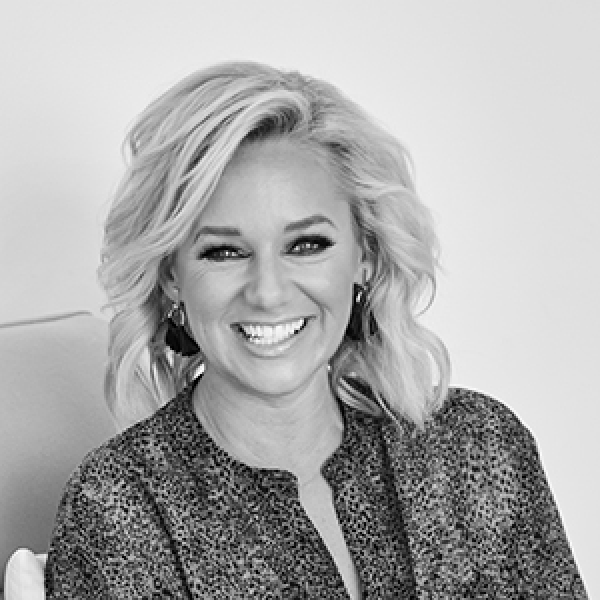
ASKING FOR A FRIEND
Do you have any advice on dealing with the franticness of deadline after deadline?
ASKING FOR A FRIEND - QUESTION
When creative deadlines feel relentless and overwhelming, it's easy to think you're the only one struggling. This discussion brings together Kimberlee Wells, CEO of TBWA, who understands the intense pressures of agency life, and Sabina Read, a psychologist specialising in creative industry mental health. Together, they tackle the question of how to handle the franticness of deadline after deadline with practical, honest advice. From creating non-negotiable personal space to understanding your body's stress response, they offer strategies that go beyond just "working harder." The conversation covers everything from the importance of proper nutrition during crunch time to having difficult conversations about unrealistic timelines. Most importantly, they remind us that asking for help isn't a sign of weakness – it's smart strategy.
Managing the Relentless Cycle of Creative Deadlines
If you're reading this whilst juggling three urgent briefs and wondering when you last had a proper lunch, you're not alone. The creative industry's pace has become increasingly frantic, with deadline after deadline creating a pressure cooker environment that leaves many of us feeling overwhelmed and burnt out.
The question of how to handle this franticness isn't just about time management. It's about survival in an industry that often demands everything whilst giving little back in terms of breathing space.
This question was answered by Kimberlee Wells, CEO of TBWA with extensive experience in creative leadership and understanding the pressures of agency life, and Sabina Read, a psychologist and mental health educator who specialises in supporting the creative industry. Andy Wright served as host, CEO of Streamtime and founder of Never Not Creative.
Create Non-Negotiable Space for Yourself
The first step in managing deadline pressure isn't about working harder or faster. It's about protecting yourself within the chaos. As Kimberlee explains: "The first thing you have to do is create space for yourself within any given day and almost you need to make a meeting with yourself that is non-negotiable because if you get to the end of the day and you are just one deadline after another after another then you've put so much in and actually taken nothing out."
This isn't about finding hours of free time (we know that's not realistic). It's about carving out moments that are yours alone. Whether it's a proper lunch break, a walk around the block, or simply sitting quietly for five minutes, these moments matter more than you might think.
The Fundamentals Still Matter
When deadlines pile up, the first things we sacrifice are often the basics: proper meals, exercise, and sleep. But as Kimberlee points out, this is exactly when we need them most: "Things like your nutrition absolutely you have to make sure that you're putting that front and centre make time for some exercise."
At TBWA, they've learned this lesson the hard way. During pitches, "the one thing that we will always create space for is for the whole team to sit down and eat together and so and also there's no there's no fatty foods there's no alcohol there's no sugar it is really about thinking as to you know how can you look after yourself to best to best perform."
Think of it like preparing for game day. You wouldn't expect an athlete to perform at their peak on no sleep and junk food, so why do we expect it of ourselves?
Understanding Your Body's Response to Pressure
From a psychological perspective, Sabina offers crucial insight into what's actually happening when we're under constant deadline pressure. "All that means to the body psychologically and physiologically is that the saber-toothed tiger is chasing you the body doesn't know the difference between the deadline being put on it by the client or a sick child or not enough sleep or too much rosé."
This is why the "banana lounge" concept is so important. Sabina describes it as "that time where you have and it could literally be for two minutes where you're letting your body and your mind know that it's at peace and it's safe and it's quiet and it's not under threat."
This might sound fluffy when you've got three presentations due tomorrow, but it's actually about survival. Your body needs to know that the threat has passed, even temporarily, so it can recalibrate and prepare for the next challenge.
Have the Difficult Conversations
One of the most practical pieces of advice from this discussion is about communication. Too often, we accept impossible deadlines without question, assuming that's just how the industry works. But Kimberlee suggests a different approach: "Talk to your business so one of the things that we're constantly engaging with is that is the whole agency around where some of these deadlines are coming from."
This means having honest conversations with senior leadership about the pressure you're under. It also means questioning clients about their deadlines: "Is it hurry up for the sake of hurry up is that hurry up only to slow down because then it gets you know whatever it is that you're putting forward gets stuck in a bureaucratic loop at client side?"
Sometimes these conversations can create breathing room. They won't solve everything, but they might help you understand whether you're rushing towards a genuine deadline or an arbitrary one.
Know When to Call It
There's a crucial skill in recognising when more hours won't equal better work. As Kimberlee puts it: "You yourself have to know when to call it because there becomes a tipping point more hours in the office if you're on if they're not productive hours because you're too tired or you know you haven't eaten properly or you're pissed off because you haven't been able to get out and do the things that are important to you you're not going to be working at your best."
This requires honest self-assessment. Learn to recognise your patterns of high and low energy, and plan accordingly. Push hard when you're sharp, rest when you're not.
Ask for Help with Prioritisation
When everything feels urgent, nothing actually is. Sabina offers practical advice for these moments: "When you're feeling so overwhelmed by prior by demands and deadlines from other people is it so fine to say to them to say to it doesn't mean you're not coping it doesn't mean you're not good at your job it doesn't mean you're not passionate and capable and able to ask someone else in the team either at your level or someone you're reporting to i'm dealing with multiple demands here can you help me understand which one is the best to prioritise at this time if i can't attend them all."
This isn't admitting defeat. It's being strategic about your energy and ensuring you're focusing on what truly matters.
Find Support Through NNC Circles
If you're struggling with the constant pressure of deadlines and feeling isolated in your experience, Never Not Creative Circles might be exactly what you need. These peer support groups connect creatives facing similar challenges, providing a safe space to share experiences and coping strategies. Meeting monthly with 8-10 other creatives, you'll find practical support and the reassurance that you're not alone in dealing with deadline pressure. The groups focus on mental health education and creating sustainable approaches to work challenges. Learn more about NNC Circles here.
When Professional Help Might Be Needed
If the stress of constant deadlines is affecting your sleep, relationships, or overall wellbeing significantly, it might be time to seek professional support. There's no shame in recognising when the pressure has become too much to handle alone. Mental health professionals can provide strategies specifically tailored to your situation and help you develop long-term coping mechanisms. Find professional help resources here.
Know Your Rights and Options
Sometimes deadline pressure crosses the line into unreasonable working conditions or workplace stress that affects your health. If you're experiencing bullying, harassment, or working conditions that are genuinely damaging your wellbeing, you don't have to suffer in silence. Never Not Creative's Support Line offers free initial legal advice for creative industry workers facing workplace issues. Access the Support Line here.
The relentless nature of creative deadlines isn't something you have to endure alone or in silence. By protecting your basics, communicating honestly about pressure, and knowing when to seek support, you can find ways to not just survive but actually thrive in this demanding industry.
Remember, taking care of yourself isn't selfish – it's essential for doing your best work.
our guests
Industry Leader

Kimberlee Wells
TBWA
Mental Health Expert

Sabina Read
Host

